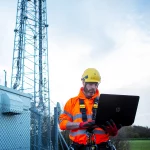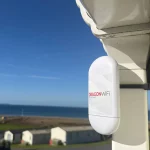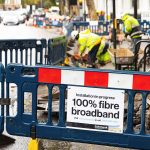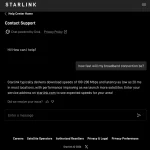Government Preps Universal Service Obligation for UK Mobile

The UK Government yesterday introduced new powers for the Secretary of State to, among other things, establish a new Universal Service Obligation (USO) for 4G or 5G mobile networks “in the future,” albeit only if that is “deemed necessary.” Questions will now be raised over what such a USO would look like.
The changes were introduced as part of the Government’s proposals to introduce the revised European Electronic Communications Code (EECC) into UK law, which among other things will ban mobile network operators from selling “locked” handsets, improve phone number portability and make it easier for consumers to switch between broadband ISPs on physically separate networks (summary).
At present a Universal Service Obligation (USO) for broadband connectivity already exists, which gives everybody the “legal right” to “request” a 10Mbps+ connection from a supporting ISP; albeit mostly focused on helping to connected those in the final 2% of UK premises (590,000 properties) where such speeds aren’t yet possible via fixed lines. Sadly, that USO is far from perfect (here and here) and is currently being probed by Ofcom (here).
Advertisement
Nevertheless, the Government’s plan to amend the existing legislation in order to support the new EECC also includes the ability to introduce a future USO for mobile connectivity, even if they don’t yet know what that would actually look like. Take note that this won’t be affected by Brexit as the UK supports these changes.
Baroness Barran MBE, Parliamentary Under Secretary of State (DCMS), said:
“The instrument also includes powers for the Secretary of State to establish a mobile universal service obligation in the future if that is deemed necessary, and ensures that people who use legacy universal service obligation services, such as payphones, telephone directories, fax and particular methods of billing, will continue to be able to do so.
Additionally, the instrument introduces measures to update the regime for social tariffs for telephony and broadband, should they be required. These will ensure that consumers with low incomes or other specific social needs are able to access universal services at affordable prices where the market does not provide these commercially or on a voluntary basis.”
The Minister for UK Digital Infrastructure, Matt Warman MP, later clarified that “the draft regulations give us the powers to consider what a mobile USO might look like,” but he added that “we do not immediately intend to take that forward.”
Matt Warman MP said:
“It is a statement of the obvious that more and more households, especially with the growth of 5G, will be able to rely on a mobile service rather than anything else. Given that the USO is really important, the draft regulations give us the power to go further but we are not announcing anything as yet.”
We suspect that the Government will first want to see how the new £1bn Shared Rural Network (SRN) proceeds, which aims to help extend geographic 4G coverage to 95% of the UK by the end of 2025 (it will also benefit the 5G rollout). The SRN involves both the reciprocal sharing of existing masts in certain areas and the demand-led building and sharing of new masts in others, between all four operators – Vodafone, Three UK, EE [BT] and O2.
The SRN’s approach means that operators can cut the cost of expanding coverage into rural areas, which will not only improve consumer choice but also help to increase general network coverage (mostly by building new masts). Much of this will be overseen by a jointly owned company called Digital Mobile Spectrum Limited (DMSL), which claims it will “guarantee” coverage to 280,000 additional premises and 16,000km of roads.
Advertisement
All of these things sound good on paper, but in the past almost every new programme of rural mast building that we’ve ever seen has run into problems with cost, supply (power, fibre etc.), access (wayleaves) and local opposition to related planning applications for new infrastructure.
Many rural communities tend to cry out for mobile improvements, but at the same time not everybody wants to see the masts that need to be built, especially if they end up being taller than existing ones (although this often results in the beneficial removal of many smaller masts). Unfortunately, you can’t have one without the other, but some of these challenges will be tackled through the Government’s new Mobile Planning Reforms.
Suffice to say that it may be a bit too early to implement a USO for mobile connectivity, but we can certainly get that debate started now. After all, it took several years to design and implement the broadband USO and the same would no doubt be true for a mobile one.
We’re certain this will crop up again as the new legislation is debated, although it’s worth noting that getting mobile operators to agree on anything has historically been akin to herding angry cats.
Advertisement
Mark is a professional technology writer, IT consultant and computer engineer from Dorset (England), he also founded ISPreview in 1999 and enjoys analysing the latest telecoms and broadband developments. Find me on X (Twitter), Mastodon, Facebook, BlueSky, Threads.net and Linkedin.
« Virgin Media UK Launch Next Gen TV 360 Platform and Box UPDATE
SIMWOOD Prepare Uncontended FTTP and FTTC Connections »






















































Worth remembering that those who have no mobile signal or very little signal indoors, can use wifi calling as a solution. Obviously you need to have a working internet connection, be on a compatible network (all 4 major networks support WC & a few MVNOs as well) and a compatible handset but the effort is well worth it.
WiFi calling should not be considered as part of a mobile USO. There are a lot of people that have to use 4G for internet – routing WiFi calling over a 4G internet connection is silly.
@AnotherTim. I disagree. It is hard enough getting effective broadband out to every premise. Are we also to subsidise via taxes or prices full coverage of indoor mobile as well?. My view is that there should be more joined up thinking and there is nothing wrong with premises just getting outdoor mobile and then users connecting to WIFI via WIFI Calling while indoors. This includes premises with 4G/5G, WISP, fixed or other broadband. Particularly as we move forward with higher frequencies.
My view is the government should look more at the restrictions/barriers (commercial and technical) that inhibit seamless connectivity for WIFI Calling and WIFI (home, public) for our devices connecting to different network providers whether at home, on the go or at venues. They should not treat fixed and mobile in isolation.
@Meadmod, so you are now requiring anyone in a poor reception area to have broadband as well as a mobile in order to make mobile phone calls? Really?
@AnotherTim
You’ll find poor mobile signal indoors is far far more common than poor quality broadband in many people’s homes, even in urban areas. Hence why wifi calling is an excellent solution, especially for those with good fixed line internet. Even having a brand spanking new mobile phone mast outside someone’s home may not improve the phone signal by much if the signal cannot penetrate through the property.
@AnotherTim. My issue is how much do we want to subsidise. If a high percentage of homes have or will have access to subsidised fixed broadband then why would we want to spend more subsidy for a mobile USO. The cost of increasing Indoor coverage (currently 80%) as opposed to Outdoor (currently 91%) would be massive. My view is the focus should be on Outdoor and getting that covered first.
If there are a smaller percentage mobile consumers that for whatever reason do not have/wish separate broadband they can specifically be assisted with a through the wall signal booster, restricted 4G router or other solutions but use of WIFI Calling would probably be more practical/cheaper.
@ AnotherTim
Why is WiFi calling over 4G silly? Here in West Devon we have zero indoor mobile signal and no useable fixed line broadband, our 4G system with rooftop antenna is our lifeline, this provides VOIP, WiFi calling and runs an O2 Boostbox generating indoor 3G, all three systems work perfectly, we have no other options currently. Silly?
Yes, mobile AND broadband, how extreme!
They also need mobile AND electricity (to charge the phone), or electricity AND water to run an electric shower.
Broadband is a utility now.
In the same way as gas and mains sewerage, 100% of UK houses are not served by it, but expecting people to have it isn’t that unreasonable.
And areas where there’s no outdoor coverage because of Nimbys/ objectors, what’s the solution for them? 0o you think areas of several thousand population should by some agreement, be forced to build better coverage, and not keep bowing to objectors, and health scaremongering?
“In the same way as gas and mains sewerage, 100% of UK houses are not served by it, but expecting people to have it isn’t that unreasonable.”
Oh well, I don’t have those either. I guess as long as everyone else is happy with the status quo the government needn’t bother with wasting money on 4G/5G or superfast broadband.
@AnotherTim: There is usually another option that meets exactly the same needs and is affordable. For example, we can have gas bottles, electric, oil heating and a septic tank.
With broadband, there are no other products that come close to the Fibre Optic offering. If we stick with your mains sewage comparison, rural broadband customers are dealing with the equivalent of having to poop in the bushes and wipe with leaves, while everyone got flushing toilets and supersoft toilet tissue. Then get upgraded further to one of those japanese toilets that does everything for you.
@RuralFermanagh, yes I’ve been saying for several years that broadband is fundamentally different to other utilities. LPG can replace gas mains, a sewerage treatment plant or septic tank can replace mains sewers, solar panels and/or a generator can replace mains electricity. None of those solutions require anything outside the property itself.
I have excellent WiFi covering several buildings and 2 acres – it isn’t the same as broadband. And it can’t be until there is some way to connect it to the rest of the internet.
Will this be the same car crash as the other USO with the no more than £3400 caveat?
Expected Scenario’s
===================
1. Consumer can get above 10 Mbit download once every 4th sunday at 3am for a 45 second test to their ‘special testing’ server.
– Not eligible.
2.Consumer applies for it as they get a get a good signal but can never get above 10 Mbit.
– Gets told it is because trees and hills are in the way. If given an excess costs quote for £1,000,000 to remove the 4x tree’s and £100,000,000 to remove the hill’s.
3. Consumer applies for it as they get little/no signal.
-Not included in the USO intervention Postcode list, not eligible.
or
– Advised that to be eligible, they must first prove the issue is with ALL providers. Otherwise they must test with the specific USO provider by signing up to a £45per month for 100GB data for 24 months, when other providers are doing £20 for unlimited data.
– Provided with Satellite solution that is £100 per month for 100GB
or
– Must pay the excess to install £30,000 worth of external masts, antenna’s and routers.
The problem with mobile companies is they always start the new project before the old one has finished. Some areas do not have 100% 3G yet they are now rolling out 5G, they should be forced to stick with a generation until they can prove that 95% or more of customers can use it.
Problem is they’re installs of edge,3g,4g and 5g are all half-assed because they’ll only be around until the next best thing arrives. That’s why every form of mobile data in the UK has been so under-provisioned for so long.
Remember how good 4g was supposed to be? 150Mbps all day long eh? Nah, not in the UK. And its not the mast signal that’s the problem, its the telco’s don’t want it to deliver 150Mbps.
Same with 5g, it might “be capable” of providing 10Gbps, but it never will because they’ll provide so little back-haul it’ll max out at maybe a 20th of that, it’ll be ham-strung by design.
How about forcing the telco’s to actually deliver on the technology so it future proofs it for the next generation instead of constantly playing catchup?
Lets hope the government use this new power as a means to effectively force telco’s to provide enough back-haul for existing 4g connections so they can easier upgrade to 5g and in doing so enable better future proofing for later on when it will become inevitable.
It’d also be nice if the government did something about the marketing of both 4g and 5g so that the telco’s are forced to deliver what they are selling, making them do away with “capable” and specify EXACTLY what service provision they are offering.
40Mbps would be a far better lower limit to set for 4g than the current 10Mbps and 5g should be 100Mbps. In doing so could also do away with the stupid fast,superfast bollocks which has also held back speeds for far too long.
What about Nimbys? There one of the biggest obstacles,the Cotswold town I live in of several thousand population, has stopped all masts being built in the area for decades, playing the health,AONB, conservation area nonsense, what’s for us, there going to have stop this problem, villages of a few hundred population get masts built, but here they get hundreds of objections and nothing.
@Mark – what’s the town, would be interesting to read the planning application reports?
Here’s the latest, near the town. Going to High Court to try and overturn a planning error. Over 600 signatures objecting to it!
https://www.stroudnewsandjournal.co.uk/news/18688177.blunder-means-rejected-vodafone-mast-will-built-beauty-spot-near-stroud/